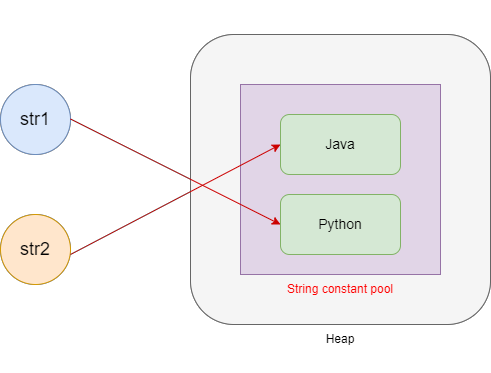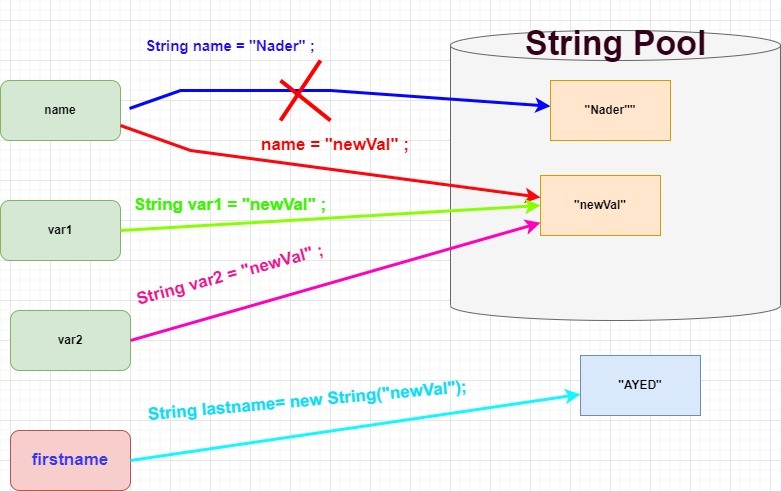Why Are Strings Immutable in Java? Vital Understanding for Developers
Why Are Strings Immutable in Java? Vital Understanding for Developers
Blog Article
What Is Unalterable Strings and How It Functions
In the realm of programming, understanding the principle of unalterable strings is critical for developing robust and secure applications. Unalterable strings refer to strings that can not be altered after they are produced, making sure information stability and predictability within the code.
The Fundamentals of Immutable Strings
Immutable strings, as a basic concept in programming, are personality sequences that can not be changed when they are developed. This means that when a string is appointed a value, that value can not be altered. In languages like Python and Java, strings are unalterable objects, leading to numerous effects in terms of memory administration and data integrity.
One of the vital benefits of unalterable strings is that they supply a complacency in information manipulation. Since the web content of an unalterable string can not be customized, it guarantees that the initial information remains undamaged, minimizing the danger of unintentional modifications throughout program execution (Why are strings immutable in Java?). This residential or commercial property additionally simplifies debugging processes, as developers can rely on that as soon as a string is specified, its worth will not be unintentionally altered
When a brand-new string is produced based on an existing one, instead than modifying the initial string, the new worth is saved individually. On the whole, comprehending the basics of unalterable strings is vital for grasping programs ideas and maximizing code efficiency.
Benefits of Immutable Strings
Building upon the security and effectiveness advantages of unalterable strings, their advantages reach improving code dependability and streamlining concurrent shows jobs. By being immutable, strings can not be changed after creation, which eliminates the risk of unintentional modifications in the information they keep. This intrinsic immutability makes sure that when a string is created, its worth remains consistent throughout the program's implementation, reducing the possibilities of bugs created by unexpected modifications.
Furthermore, unalterable strings add to code dependability by making it much easier to reason about the state of a program. Since strings can not be changed, designers can rely on that a string will constantly hold the same worth, simplifying debugging and upkeep initiatives. This predictability brings about much more dependable and steady codebases.

Implementation in Shows Languages
Within various shows languages, the incorporation of unalterable strings is a fundamental aspect that influences exactly how data is managed and controlled within code structures. The implementation of unalterable strings differs across different programs languages, with each language supplying its very own mechanisms to sustain this concept.

On the other hand, languages like C and C++ do not have integrated assistance for unalterable strings. Designers in these languages need to by hand carry out immutability by applying regulations within their code to stop straight modifications to string objects.
Finest Practices for Functioning With Unalterable Strings
When managing unalterable strings in programs languages like Java and Python, sticking to best techniques ensures efficient and protected information control. One of the essential ideal techniques is to utilize StringBuilder or StringBuffer rather than directly adjusting strings, particularly when taking care of extensive concatenation procedures. These courses give mutable alternatives for string manipulation, helping to prevent unnecessary memory allowances and enhancing efficiency.
Furthermore, when working with delicate data such as passwords or API secrets, it is crucial to stay clear of keeping them as simple message in immutable strings. Making use of protected storage space devices like char arrays or specialized libraries for handling delicate information aids minimize protection dangers linked with immutable strings.
Real-world Applications and Examples
Checking out functional applications of immutable strings in numerous industries reveals their substantial this post influence on data honesty and system reliability. In the health care field, immutable strings play a critical duty in making sure the safety and confidentiality of patient data. By stopping unauthorized alterations to delicate info such as clinical records and prescriptions, unalterable strings assist keep compliance with strict personal privacy policies like HIPAA.
Banks also take advantage of the immutable nature of strings to boost the safety and security of customer data and transaction documents. Immutable strings assist prevent fraudulence and unauthorized modifications to financial info, offering a robust protection versus cyber threats and ensuring the depend on and self-confidence of customers.

Final Thought
In final thought, immutable strings are dealt with and unchangeable series of characters that supply benefits such as string safety and security and boosted efficiency in programs. They are executed in different programming languages to make sure data honesty and safety and security. Ideal practices for working with unalterable strings consist of preventing direct alterations and utilizing methods that return brand-new string things. Real-world applications of unalterable strings include information security, caching, and string manipulation tasks.
Unalterable strings refer to strings that can not be changed after they are developed, making certain data honesty and predictability within the code. When a brand-new string is produced based on an existing one, instead than changing the original string, the new value is kept independently.In languages like Java and Python, strings are unalterable by default, implying that have a peek at these guys once a string object is developed, its value can not be altered - Why are strings immutable in Java?. Ideal methods for working with immutable strings consist of preventing direct modifications and utilizing methods that return new string objects. Real-world applications of unalterable strings include information security, caching, and string adjustment jobs
Report this page